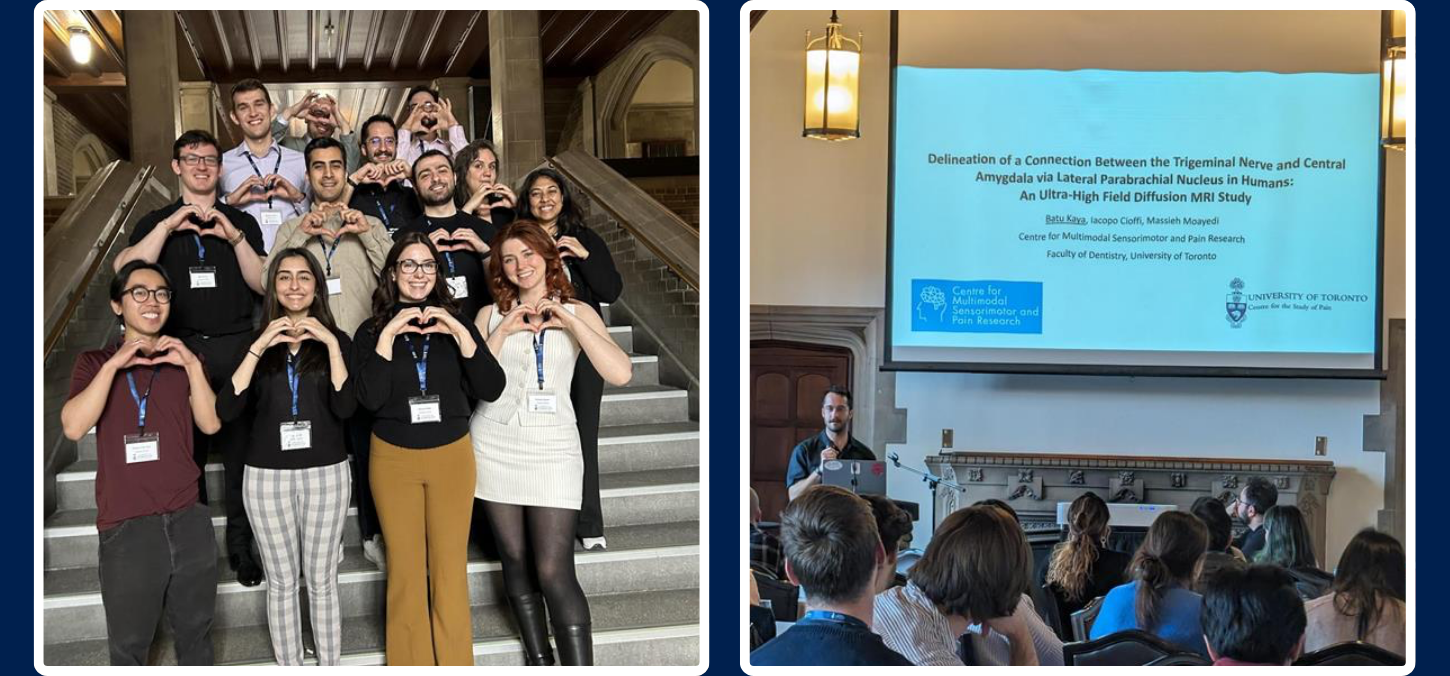
UTCSP events bring together international pain researchers
By Rachel Boutet
From March 18 to 20, 2024, the University of Toronto Centre for the Study of Pain (UTCSP) hosted two events that brought together local, national and international pain researchers. The planning for both events was overseen by Rachael Bosma, director of UTCSP and assistant professor, status only, at the Faculty, and Massieh Moayedi, chair of the UTCSP Research Committee, associate professor and Canada Research Chair (Tier 2) in Pain NeuroImaging at the Faculty.
The first event was the UTSCP Annual General Meeting, designed for the U of T pain community to showcase the scientific progress made at the university over the year, including poster presentations. It was attended by students and faculty and included four speakers: Luis Garcia-Larrea, research director for the NeuroPain team at the Lyon Neuroscience Research Centre; Laura Simons, professor in the Department of Anesthesiology, Perioperative and Pain Management at Stanford University School of Medicine; Beverly Orser, professor and chair of the Department of Anesthesiology & Pain Medicine, Temerty Faculty of Medicine; and Iacopo Cioffi, associate professor at the Faculty of Dentistry and co-director the Centre for Multimodal Sensorimotor and Pain Research (CMSPR).
The second event, the Human Pain Seminar Series (HPSS) Summit 2024, ran over the course of two days, including 15 international invited speakers, a career trajectory panel, a trainee poster competition and DataBlitz competition. This event was supported by UTCSP and a CIHR Planning and Dissemination Grant. The HPSS Summit focused on highlighting national and international pain research. It’s the second year U of T has held this event, with Western University planning to host in 2025.
Moayedi said both events were a success and garnered a lot of positive feedback.
“People were really excited to learn from international researchers on a diverse range of topics,” he says. “We also had many attendees tell us they loved the size of the event – it was intimate enough that everyone was able to talk to each other during the networking breaks.”
The international speakers represented Canada, the United States, England, South Korea, Spain and Belgium. They spoke about topics including biomarkers for chronic pain, trauma and pain, advances in pain neuroimaging, the psychology of pain and bodily perception, and pediatric pain.
The Summit also included poster presentations, and the Datablitz competition which gave students seven minutes for oral presentation of their research. The top two awards went to Faculty of Dentistry students: Georgia Hadjis for the presentation “Pain affects cognitive task performance in a value-based manner”, and Batu Kaya for “Delineation of a Connection Between the Trigeminal Nerve and Central Amygdala via Lateral Parabrachial Nucleus in Humans.”
Moayedi says it was the speaker panel on the second day, moderated by Bosma, that received the most positive response, which consisted of five faculty from abroad having an open discussion about career trajectory.
“There can be a lot of barriers, challenges and also successes in this field,” says Moayedi. “It’s not often you get the opportunity to have five renown scientists speak frankly about their journey and provide advice making their own difficult choices that led them to where they are today. I think it’s important for students to realize they aren’t alone when it comes to imposter syndrome or feeling like they have to go into academia. Having them hear this from their peers and being able to ask tough but important questions was one of the most valuable parts of the Summit.”
Top photo: HPSS Summit (courtesy of Massieh Moayedi)